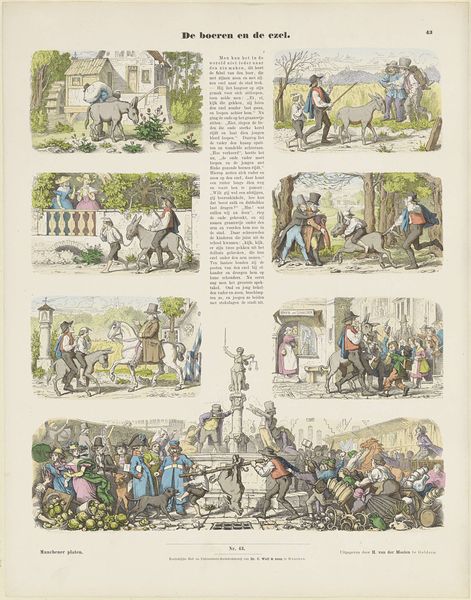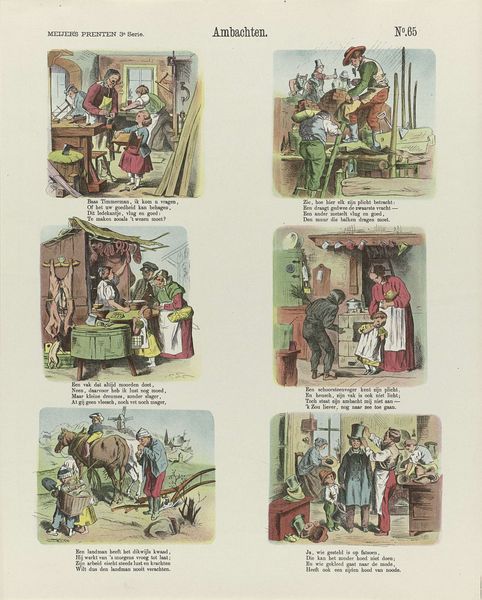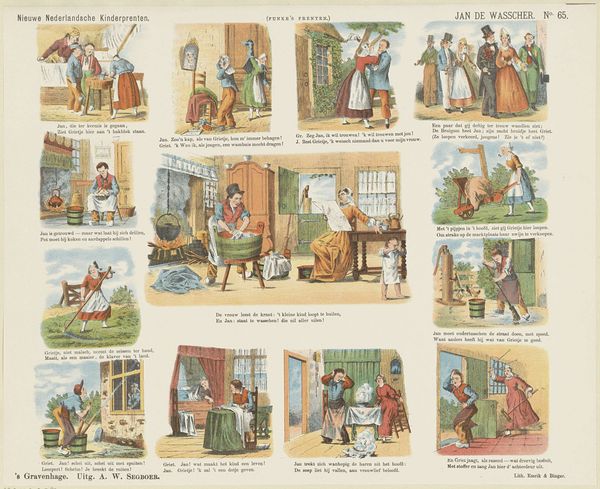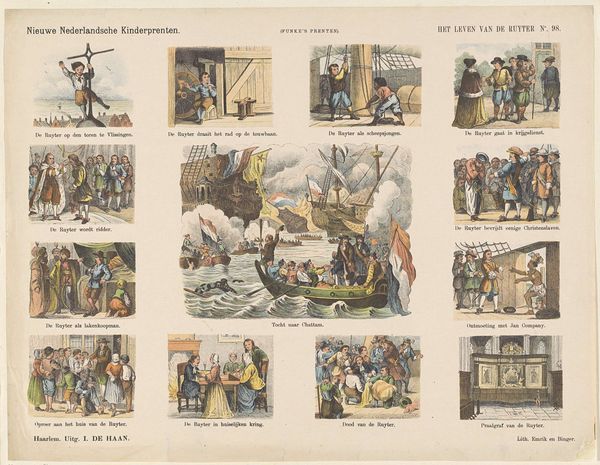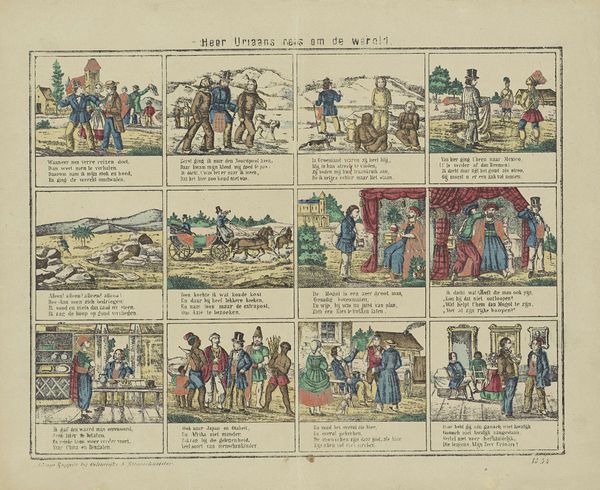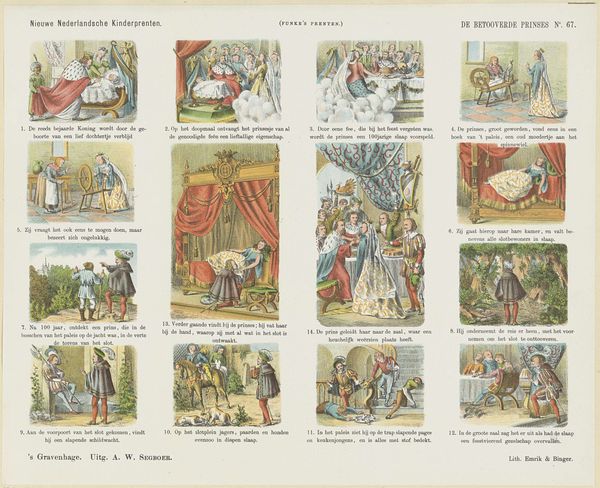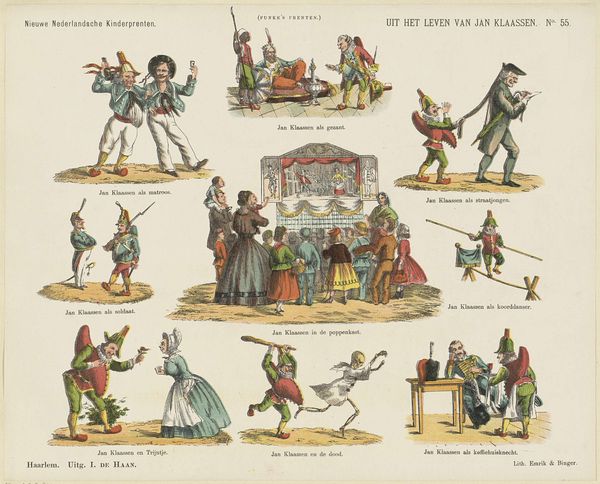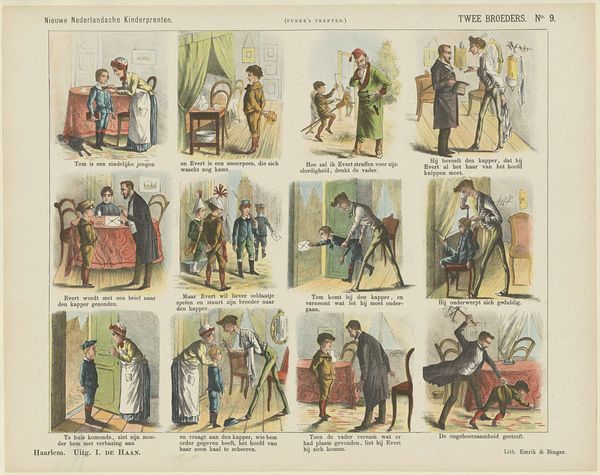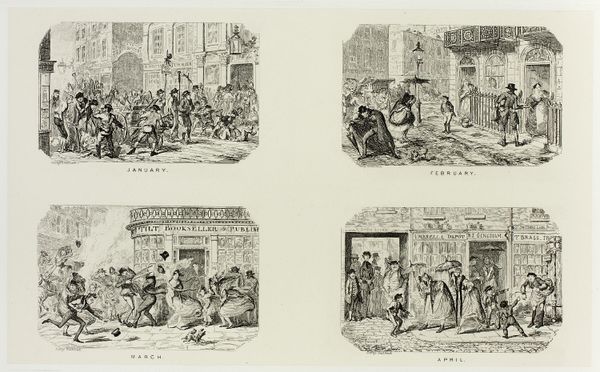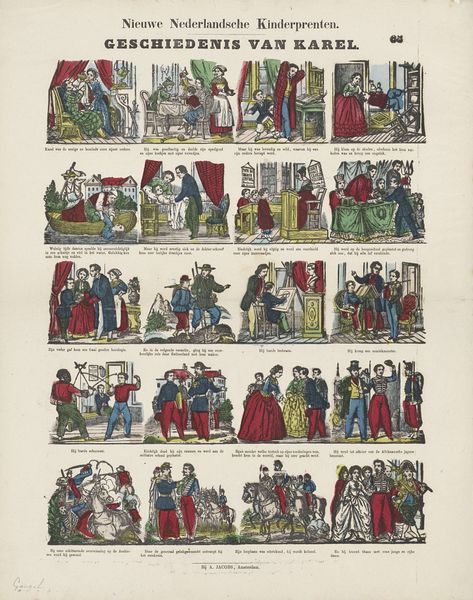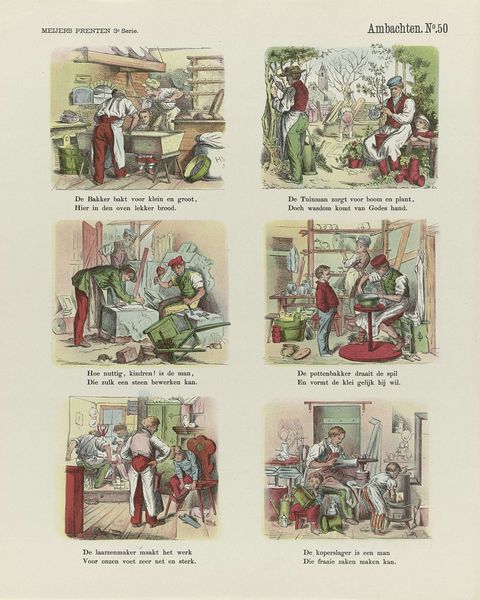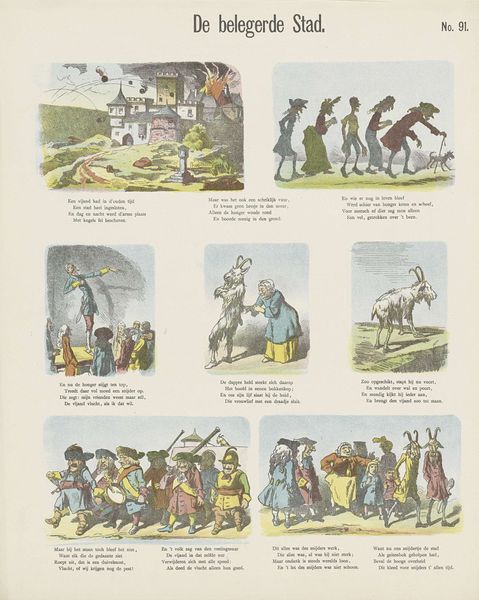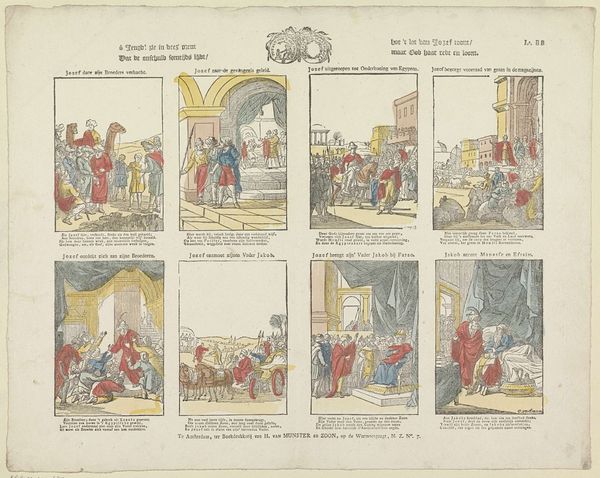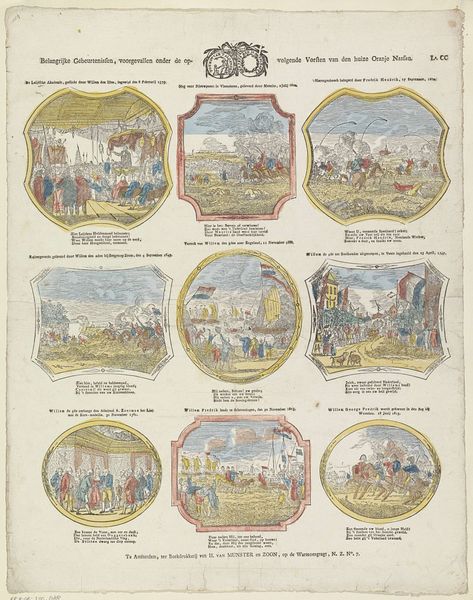
lithograph, print
#
narrative-art
#
lithograph
# print
#
watercolour illustration
#
genre-painting
Dimensions: height 344 mm, width 444 mm
Copyright: Rijks Museum: Open Domain
This print, Tafereelen uit Uilenspiegels Leven, was created by Jan de Haan, and lithographed by Emrik & Binger. Its flat surface and illustrative style, are born of the lithographic process, a printing technique reliant on the chemical repulsion of oil and water. A design is drawn on a stone or metal plate with a greasy crayon, then treated with acid to etch the image. The plate is then dampened and inked; ink adheres to the greasy image, but not to the wet areas. Paper pressed against the plate picks up the ink, transferring the image. Lithography allowed for relatively quick and inexpensive production of images, contributing to the rise of mass media in the 19th century. Prints like this, with their narrative scenes and accessible imagery, brought stories and entertainment to a wider audience, reflecting the democratization of art and the rise of consumer culture. The production of prints like this also relied on the division of labor, with specialized roles for the artist, lithographer, and printer. By considering the materials and processes behind this print, we gain insight into its cultural significance and the forces that shaped its creation.
Comments
No comments
Be the first to comment and join the conversation on the ultimate creative platform.
